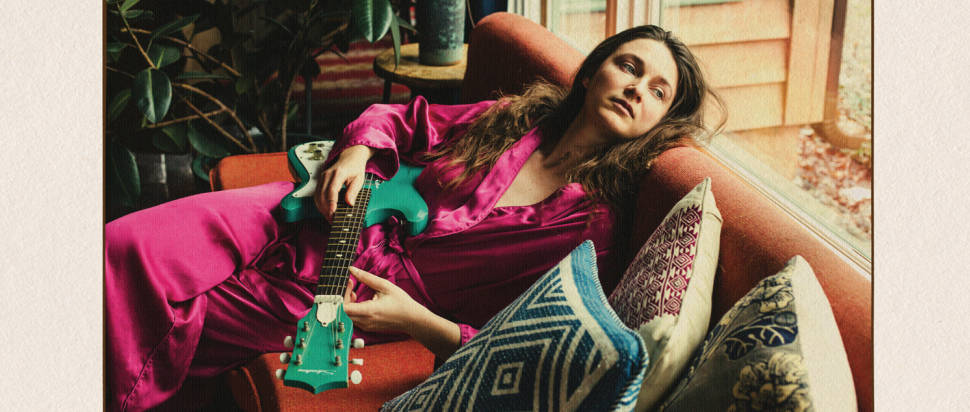Molly Sarlé – Karaoke Angel
Molly Sarlé’s first record without her Mountain Man bandmates sees her attempt to take control of her own story
In the press notes to Karaoke Angel, the name and work of Joan Didion is directly mentioned: “We tell ourselves stories in order to live.” It is a bold evocation ahead of Molly Sarlé's debut solo work – Didion is widely considered the voice of a generation, one who captured a simultaneously chaotic and blissful period of American life with unrivalled verve and accuracy. But the ambition to reach for the best can often outweigh work that even falls wide of the mark.
Karaoke Angel plays as Sarlé’s attempt at finally telling her own story, but tales of ex-lovers struggling with addiction (This Close) and sung odes to a current flame’s ex-wife (Kimberly), seem to come from a variety of lived experiences that throwback to the messy, 'anything goes' California of Didion. Written as Sarlé indulged her nomadic tendencies on the West Coast, the stories, regardless of how autobiographical, blur the line between fact and fiction. In a time when solo artists like Mitski are challenging the idea of the confessional woman artist trope, it’s an interesting road to take.
Sonically, around a third of the record leans into its direct inspirations too. Opener Human and later, less successfully, Faith For Doubt, divvy up the greatest hits of a Laurel Canyon-indebted film soundtrack with the driving rhythms of Fleetwood Mac. The latter is The War on Drugs without the transcendence. These, unfortunately, muddle an album filled mostly with quiet, vocal-led tracks that veer from haunting, sparse ballads to something more hopeful. The overdubbed vocals of Suddenly lean on Haim sunniness, but its being sandwiched between two tracks, Dreams and Passenger Side, that put Sarlé’s beautiful rasp of a voice front and centre, backed by little else than her guitar.
This Close comes early in the record, but it’s where Sarlé’s intentions seem to all lock into place, bringing together elements that have varied successes individually across the album’s ten songs, into a something that can happily hark back to the era she has an obvious fondness for, and do more than simply get away with it.
Listen to: This Close, Almost Free, Dreams
